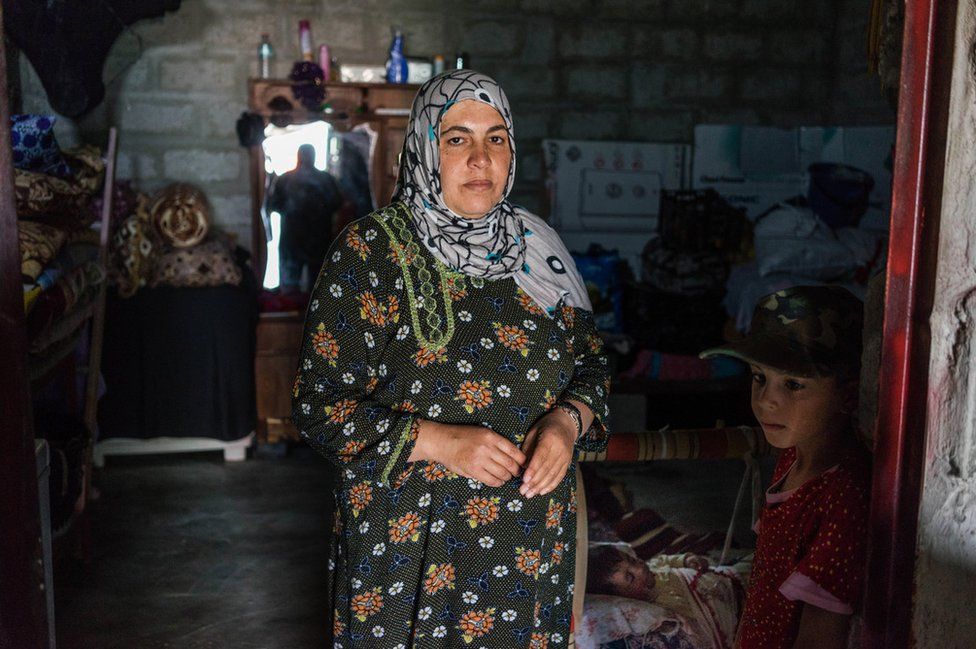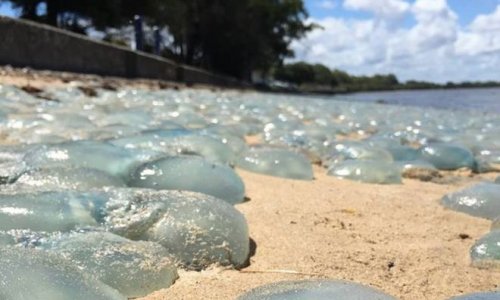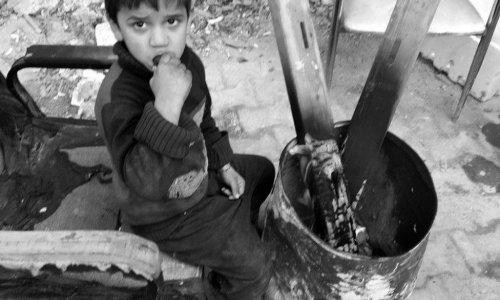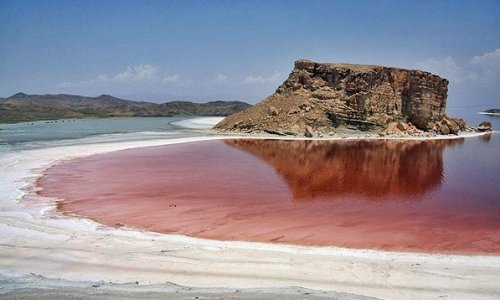Photographer Abbie Trayler-Smith travelled to Iraq with Oxfam to meet two women who have returned to their homes in the village of Bashir which was liberated from so-called Islamic State (IS) earlier this year. Here they describe what happened from the moment IS arrived.
Yusnita's story
Before this crisis, we were living very well. We had a two-storey house, livestock and a shop. We weren't worried about IS because we were surrounded by military and police. We were careless about it; I never thought they would come to Bashir.
When IS came, my husband was away working repairing electricity pylons. The traditional culture here is that the husband is the head of the family and women don't do anything without their permission. He told me to stay but I saw people escaping from the village on the road so I called him.
The imam was on the speaker telling people not to leave, he was saying that those that leave are cowards; that's why so many people stayed in my village.
My eldest daughter understood what was going on and she was afraid. She was telling me not to listen to her father; they are shooting, we should go. I tried to comfort her and tell her it would be OK and that her father would come and rescue us.
I was afraid because they were shooting and bombing, so I took my children and went to Taza, the next town.
I kept thinking it was the end of our lives and they would kill us. I kept thinking about my husband who was close to the frontlines.
After leaving Taza and going to the mosque, we stayed there for seven months. After that we went to a school building for two months. Then the school year started and we were asked to leave so we went to live in a cattle stable in Leylan where we stayed for a year. The neighbours helped us and gave us food. Nobody knew us, we were strangers there; but they helped us anyway.
I didn't send my son to school because I thought we would come home soon. He lost a year of his education. Even now it's hard for me to send the children to school. They need clothes and books and I have no money.
Every day that I was displaced I was living to come home. When Bashir was retaken I told my husband that I wanted to come back. He said we couldn't because we were fasting and I told him we should go home and fast once we're back.
The first time I saw my house I cried for a long time. My blood pressure went up so my husband took me away. For a month I couldn't come here. I kept thinking to myself that at least I have my husband and children. I kept comparing myself to those that had been captured or killed.
When we eventually came back there were red warning strips all over the house saying there were mines inside but I cut the tape and came inside anyway. I wasn't worried; I can watch where I put my feet. One mine exploded outside my house.
My husband is a barber, but IS destroyed his shop so now he has no job. We spend all of our time building our house. Our nephews help us, and even though it isn't complete yet I decided to bring my children home.
I am happy to be home because it's my home; even if I only eat bread I am happy to be back. I never thought I would get to come back.
Samira's story
The day it all started, my husband had gone to visit the shrines and I was alone baking bread for my family. It was about 8am. There was a lot of shooting in the streets and our house was getting shot. All of the young people were coming out of their houses and making a frontline.
I called my son, who is a policeman working with the emergency forces in Kirkuk, and I asked him to come and save us. When he arrived, I gave him the bread I had been baking and he took it to the frontline for the soldiers and his brother.
I couldn't think straight; I was out of my mind in panic. We took the car and within two hours IS had taken our village.
We went to Taza, the closest town, but we could see that IS was coming very fast, so later we left for Kirkuk. When we arrived in Taza, people there didn't know what was happening. They asked us what was going on and we told them that IS was coming.
IS killed 75 people that day and they did terrible things to the bodies. My youngest son and two nephews died.
We faced so many difficulties when we were displaced. I lost two children from malnutrition. After six months in Kirkuk they got sick and my grandson died of starvation. The doctor told me he was suffering from malnutrition but we had no food.
We were on the streets; what could I do? We were always hurting. We thought maybe we had done something bad in our lives and we were being punished.
The first thing that happened when I came home was someone showed me where my son had died. When I saw where he was killed, I became very sick. I slept for seven days.
Now I am more happy because I am settled and not moving from house to house. I used to own a small shop and I would like Oxfam to help me reopen it. I used to have small window at the back of the house and sell groceries from there."
at the back of the house and sell groceries from there."
 at the back of the house and sell groceries from there."
at the back of the house and sell groceries from there."(BBC)




www.ann.az
Follow us !











